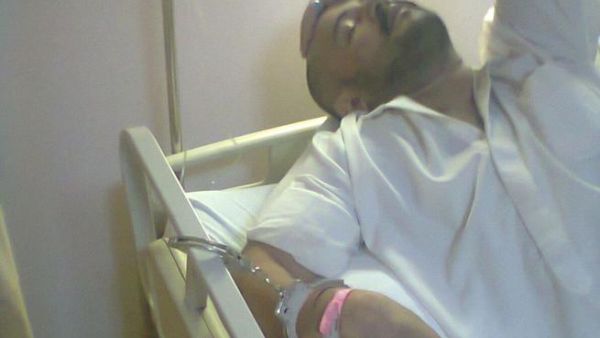Jebel al Nasr is not an area of the Jordanian capital that most tourists would visit. It’s well out of the glitzy city center, in an area of small stores and more traditional livelihoods.
It’s also the scene of mass gunfights, Molotov cocktails and burning buildings. You might ask - where are the police? When we visited, there was one police van in an area of several miles with an officer snoozing in the front seat.
The souq was quiet when we saw it but residents tell of a very different story. They have witnessed the gang battles between the two major tribes in the area, the Harahsheh and the Abu Rmeileh. These are not just families with a grudge: they are hundreds of members strong and they are heavily armed with Uzis and AK47s.
Jebal al Nasr is not some anomaly either, last month a 22 year old police officer was gunned down when one of the tribes in Muwaqqar, North West of the capital, attacked the police station.
500 heavily armed members of the Khreisha clan launched an assault after one of the family members was arrested. So far no one has been charged and many in Jordan believe the government is too weak to take on the tribe head-to-head.
Back in Jebal al Nasr we talk to Rafat, owner of a clothes store just off the main street. He speaks to us on the condition of leaving off his last name as he is too afraid of revenge attacks on his business.
He tells us that small arguments about the price of a t-shirt can turn into all-out warfare if the tribes get involved.
“I know a shopkeeper that tried to complain to the police about it. They took him out in a police car but clan members stopped them and the police had to let him go.”
The Harahsheh tribe then attacked the shopkeeper with knives, according to Rafat; just one indication of how much power the tribes have over the state in Amman.
But the squabble didn’t end there and the family went on to burn down two stores in retaliation. A small crowd gathers around us to confirm this story. Many of the residents of this market area are angry that the police apparently did nothing in the face of such violence.
A further shop was burned down the next day, after which the police chief visited the area to tell them “we have it under control.” Jaball al Nasr natives were not convinced.
“If they [the clans] come and hurt me and I go to the police, I will get hurt more,” says Rafat.
Hammoudi who owns a shoe store down the road agrees. He tells us he’s lost 70% of his business because of the lack of security in the area. The shopkeepers took action at the beginning of last month, writing a letter to the local police, to ask them to tighten up security. But, they said, nothing happened in response.
The Harahsheh are not the only tribe in the area causing trouble. Rival clan, the Abu Rmeileh are also a part of the problem. We go to meet head of the household, Adil Abu Rmeileh in a nearby store.
He blames the government for the burning shops and tribal warfare:
“It’s their duty to protect people,’ he says.
It’s clear that the relationship between the police and the tribes is closer than it should be. Adil’s brother Mutaz claims the police tied him up and took him to the family house of the rival clan, where they tortured him. His face is covered in long knife-cut scars and he shows us pictures from just after the attack. It’s brutal.
The Abu Rmeileh are Jordanians of Palestinian origin - from Hebron in the West Bank - where as the Harahsheh are Jordanian. Adil says this means their influence with the police is substantially less than their rivals.
“The police have control over the weak but not over the tribes. I’m ready. If I need to defend my family I will because the state is failing us,” he says.
By Helen Brooks and Elwan Bader







